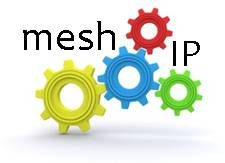 For a concept that seems so surreal, cloud computing is surprisingly ubiquitous. It is almost impossible to surf the internet without interacting with it in one form or another. Webmail services such as Google’s Gmail and Microsoft’s Hotmail are a well-known example of cloud computing at work, as are streaming services such as Netflix and YouTube. You’ve probably bumped into the concept at your workplace in the form of Microsoft’s Office 365 and Google Apps.
For a concept that seems so surreal, cloud computing is surprisingly ubiquitous. It is almost impossible to surf the internet without interacting with it in one form or another. Webmail services such as Google’s Gmail and Microsoft’s Hotmail are a well-known example of cloud computing at work, as are streaming services such as Netflix and YouTube. You’ve probably bumped into the concept at your workplace in the form of Microsoft’s Office 365 and Google Apps.
Do you watch TV? Well, cloud computing is very similar to the system used to deliver content to the svelte LCD in your living room. While your favorite show or sports program starts its life in the bowels of a media company, clouds begin by companies like Google, Amazon, Microsoft and Apple building data centers to store and process huge amounts of data.
Television programs get to you via cable, satellite or over-the-air transmissions. Similarly, an Internet connection is needed to link you to the cloud. Sometimes, this is the same infrastructure that delivers TV programs to your living room. This makes it possible to access a service like YouTube on a compatible television.
To access TV programs, you need to buy a cable box, an antenna or satellite dish and a television. Similarly, you need an Internet-enabled device such as a smartphone or a laptop to visit the cloud. Please note that you may need to install an application and set up an account before accessing the system, but that is usually straightforward.
The cloud makes it possible to buy or lease computing services in the same way you pay for electricity or cable television. There are three types of services you can pay for using this approach:
Software as a Service (SaaS): Instead of buying and installing software in your computer, you can choose to lease it and use it over the internet. This can save you a lot of money, particularly for expensive software that you only use once in a while.
Infrastructure as a Service (IaaS): Instead of investing in a high-end computer, you can opt for a cheaper, less powerful device and lease extra processing capacity from a cloud computing provider whenever you need it.
Platform as a Service (PaaS): If you own a small business, you can use the cloud instead of investing in an entire computer system.
In addition to the above, industry players started to invent new types of services as part of their cloud offerings such as Desktop-as-a-Service (DaaS); Storage-as-a-Service (saaS); Network-as-a-Service (NaaS) and some of them claim (Xaas) which means Anything-as-a-Service.
How safe is the cloud? Companies that provide these services consistently invest in the latest security technology available with the aim of keeping your data secure. Generally, if you are not tech savvy, you may be better off keeping your files in the cloud. That doesn’t mean advanced users don’t benefit from cloud computing. On the contrary, many use it to augment the limited capabilities of their devices.
Cloud computing brings with it a lot of advantages. No longer do you have to lug around bulky hard disks and thumb drives; storing and sharing files can be done at the click of a mouse. An extension of this model allows people to collaborate on projects such as document editing or computer aided design in real time even when they are very far away from each other.
The files you save in the cloud can be accessed from virtually any location and with almost any web-enabled device. It is now possible to upload a document to your Dropbox account from a computer in Dubai, UAE and have someone else access it, almost instantly, from an Android device in Loliondo, Tanzania. You can do the same thing with your movie and song collection.
Another advantage of this approach is that it is platform independent. This means you no longer need to figure out which application is compatible with your operating system. You also avoid the hassles of keeping your software up to date. If there is a program you need to use only once, you can save money by leasing it from a cloud computing provider.
In most cases, cloud computing is designed to be idiot proof, which allows those who are less tech savvy to use sophisticated applications. If you own a small business, this is a huge advantage as less training is needed, which saves both time and money. In addition, the system allows your organisation to access virtually unlimited computing resources at a relatively reasonable cost. Since the system is flexible, you can scale up and down quickly when needed. This is almost impossible with traditional computing.
Like anything else, this system has a few disadvantages. For example, you need a fast, reliable, reasonably priced, always-on Internet connection in order to maintain access to your cloud applications. Unfortunately, this is not always available, particularly in the less developed areas of the world. Outages and hackers can also be a problem. Despite this, the benefits of cloud computing far outweigh the disadvantages.
Author: Mohamad Jamal-Eddine
Source
- The Customer Edge Drives the Need for NaaS - June 25, 2023
- Blockchain Evolves And Secures - January 13, 2019
- Bessemer Ventures’ 2018 Cloud Computing Trends - February 25, 2018




